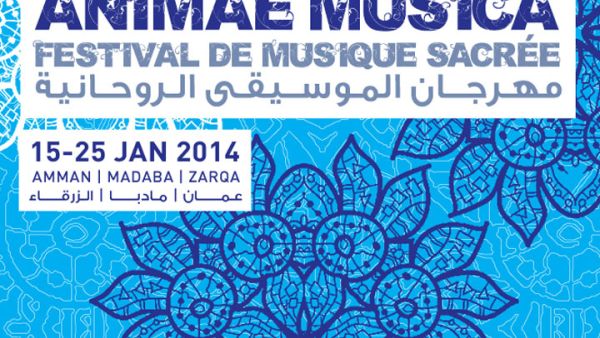For the third annual edition of its “Animae Musica” festival of sacred music the Institut Français de Jordanie (IFJ) will present six different acts from four countries in a total of 11 performances in Amman, Zarqa and Madaba.
From Turkey will come the Whirling Dervishes of Konya; from Syria singer Waed Bouhassoun; from Jordan the Jalwa and Fountain of Love ensembles; and last but not least, the Sagittarius and Perspectives groups will be visiting from France.
From Baroque to Sufi, and from European to Middle-Eastern sacred chants, the festival, which runs through January 25, promises to please the audience with a wide palette of sacred music.
The Whirling Dervishes of Konya, a city south of Ankara, have given more than 1,200 performances the world over. The 16 musicians seek to be closer to God through their prayers, by means of mystical chants and dances that find their roots in the 13th century AD.
Sagittarius focuses on the vocal interpretation of Baroque works, mainly from the French and German repertoire. They have been hailed for the depth and the authenticity of their performances.
Jalwa will present Sufi chants from Bilad El Sham, Iraq and North Africa. The musicians will be led by Sheikh Abu Mariam.
Critics agree that Syrian vocalist Waed Bouhassoun, who also has a degree in ethno-musicology, possesses an exceptional tone of voice. She has received rave reviews in the renowned French newspaper Le Monde for a concert she performed at the Institut du Monde Arabe in Paris in 2006.
The five singers of Perspectives (soprano, alto, tenor, baritone and baritone-bass) will interpret European sacred works from the Renaissance, Baroque and Romantic periods, with compositions by Grieg and Brahms among others. They exclusively perform a cappella.
Jordanian Fountain of Love will bring an impressive choral line-up of 16 sopranos, 12 altos, 10 tenors and eight basses that will be accompanied by 13 musicians including two guitars, one bass, one cello, one piano, one oud, one flute, one trumpet, one clarinet and four violins. The ensemble was founded in 2002 and interprets Christian Gregorian, Byzantine and classical works.
More detailed information on the festival, the venues and the participating musicians can be found on the institute’s website: www.ifjordan.com.








